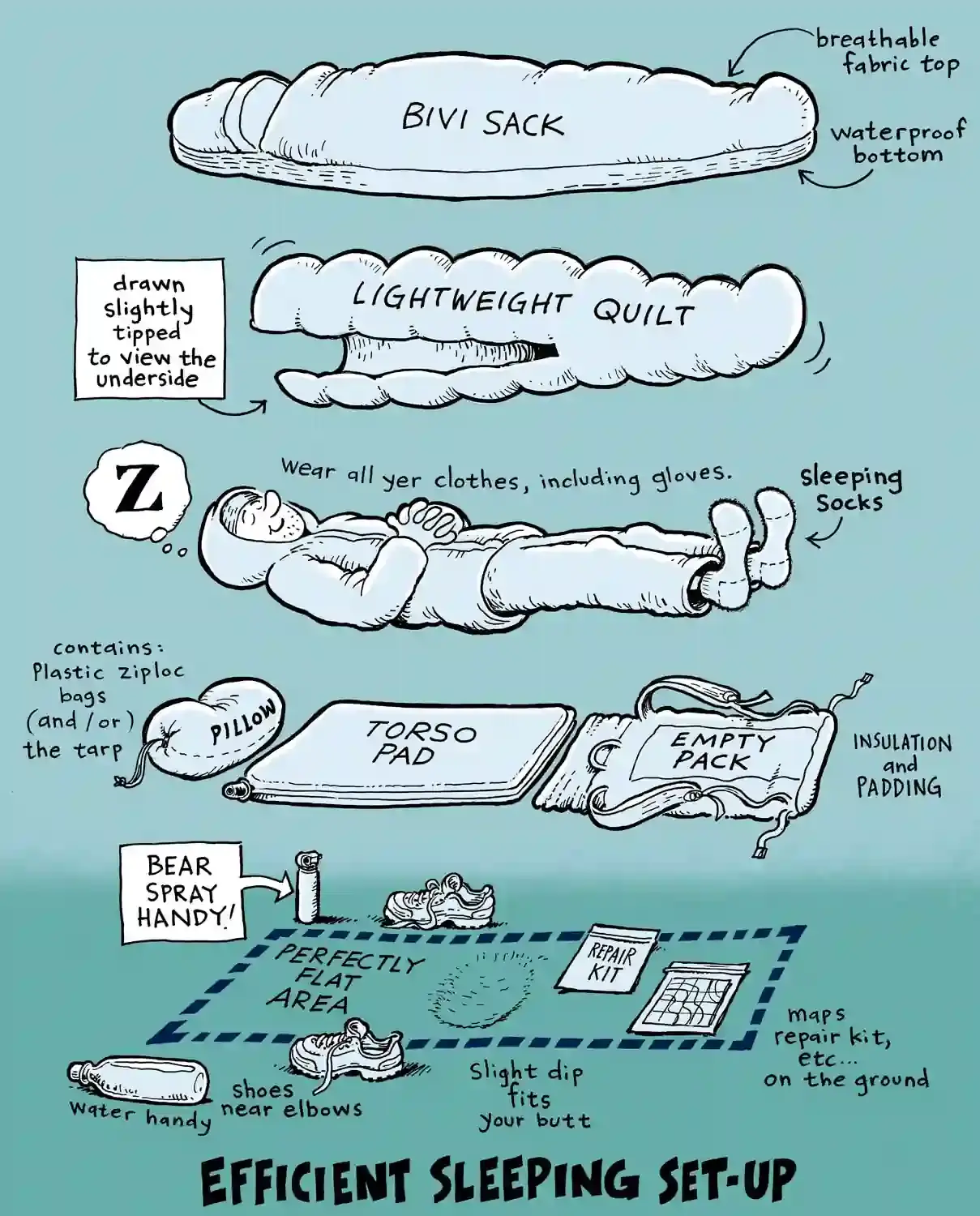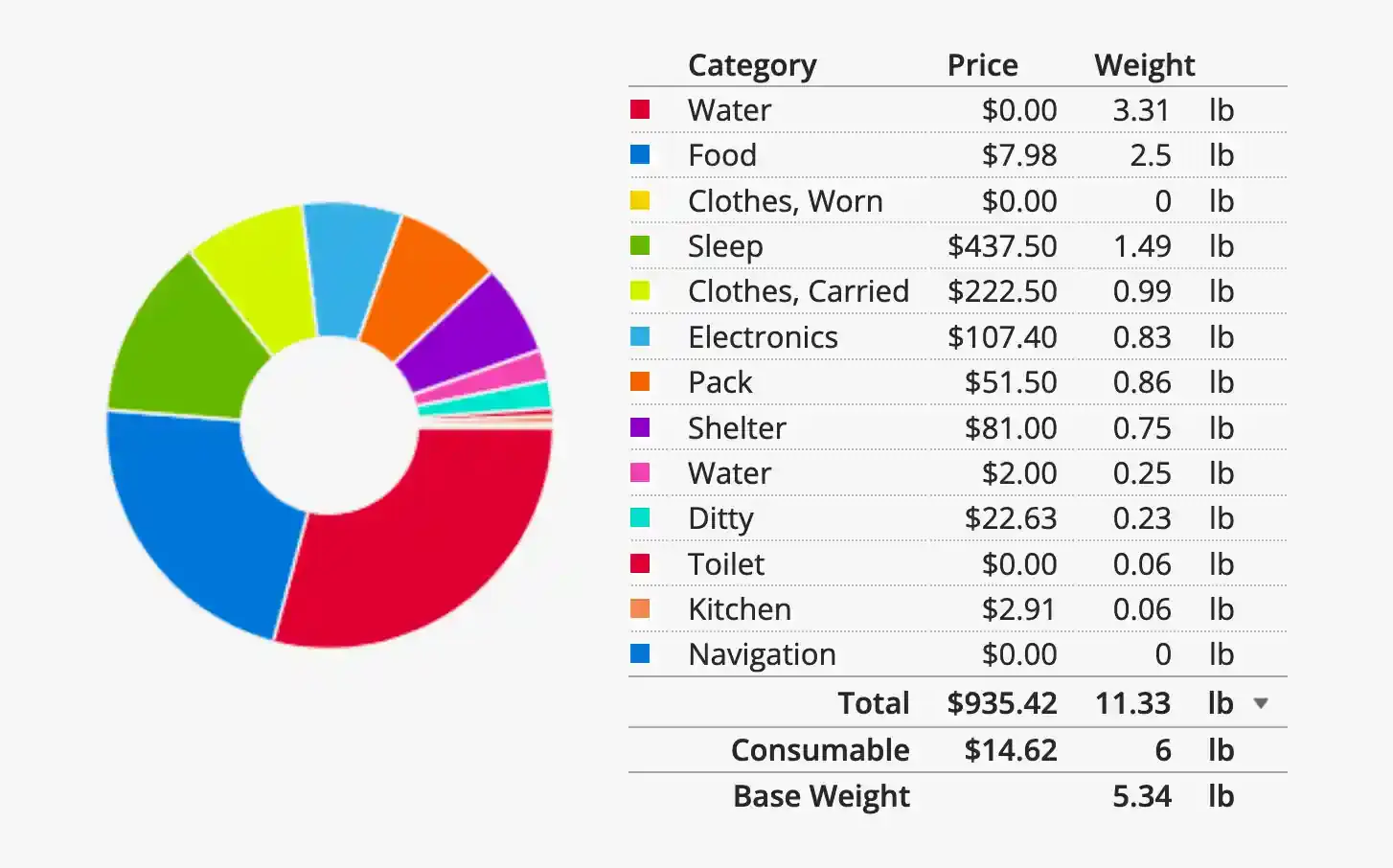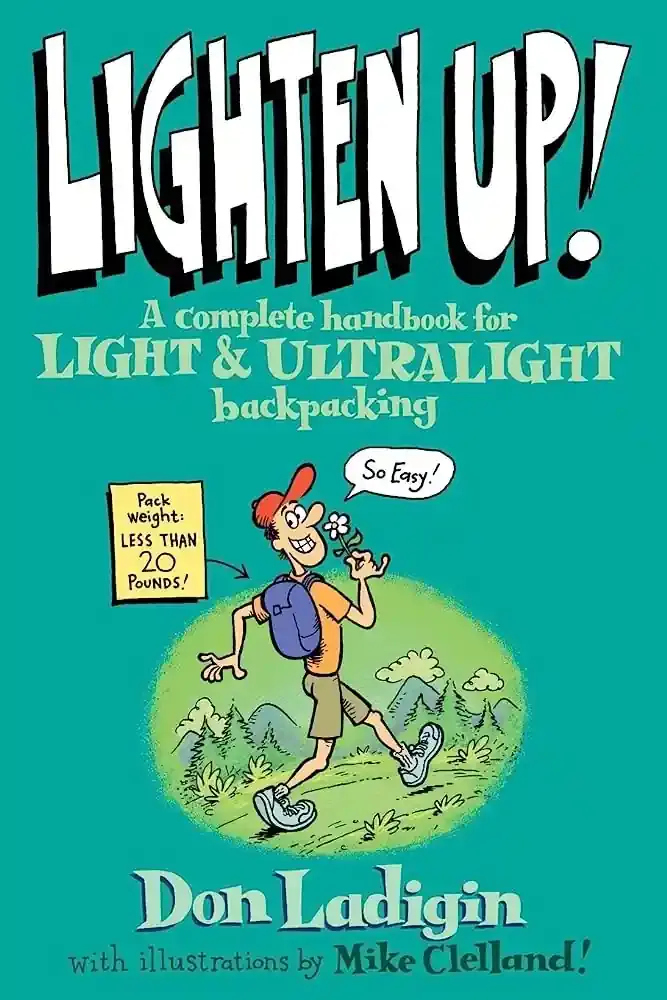original post by [deleted]
I see a lot of people complaining about being cold at night. I also meet a lot of people on trail who say they are carrying 0º or 10º bags/quilts who are still complaining about being cold. I used to think I was a cold sleeper, but now I sleep warm and cozy every night. I'm going share a few tips that work really well for me, your mileage may vary.
Gear
I've taken this setup well into the 20ºs and been very comfortable.
- Katabatic Palisade 30º, 6'0" normal width (I'm 5'10" and 145lbs.)
- Thermarest NeoAir X-lite Women's
- (Sometimes) Katabatic Bristlecone Bivy
- Tarp
- (On AZT w/ girlfriend) Nemo Hornet 2p
If you are going to spend money on anything, spend it on a good quilt. My only experience is with a 20º EE Revelation and my beloved 30º Katabatic Palisade. I find the Katabatic to be vastly superior to many ways to the EE, not just in build quality but in the design choices made. Here's why:
- Differential cut makes the quilt wrap around you naturally
- Elastic hem around the opening also helps the quilt wrap around your body
- Superior pad attachment system
- Draft collar
- Overstuffed footbox and draft collar
Nunatak also has many of these features, but I have never slept in one of their quilts. I am hoping to test some of their products soon and will report back.
The bivy is a new addition for me, and I love it. I bought the Katabatic because of the integration with their pad attachment system and I believe in their build quality. There are several other high quality bivys including Borah and MLD. I find the bivy to be amazing for cowboy camping. It completely eliminates drafts and adds about 5-10ºs (estimate) of warmth. I'm not a scientist, but it seems like windy nights can pull warmth away from your quilt, especially when cowboy camping, because quilts tend to use highly breathable fabric. I've noticed on windy nights in the bivy this isn't an issue.
I believe I could be just as warm on a foam pad, the NeoAir is a comfort thing for me.
I almost always cowboy camp unless it's raining or I have a non-ideal camp site. More on campsites later.
Clothing
Moisture is your enemy. If you are wearing anything that is wet or sweaty, take it off. Absolutely do not sleep in your hiking socks, they are damp even if it doesn't seem like it. My only exception to this is I will occasionally sleep in my hiking shorts because they dry so fast.
The only layer I wear on my top half is my Melanzana hoodie because it breathes extremely well. Don't have a cow, any fleece would be fine. I carry a Montbell Tachyon wind jacket and a Frogg Toggs rain jacket and I absolutely NEVER sleep in them, no matter how cold it gets. The few times that I have tried, I got clammy and extremely cold. This is one of the reasons I don't like puffies for sleeping, the shells are nylon and that makes me clammy.
On my bottom half I almost always sleep in my shorts. If it seems like it will get very cold, or I have a non-ideal campsite, I wear leggings. My leggings are some kind of generic polyester sport things I got at a thrift store. I don't believe base layers need to be fancy, save that money for your quilt.
I never wear socks to sleep. I used to and my feet were always cold. I think this has something to do with compression and blood flow. I've heard people have better luck with loose fitting socks. Low 20ºs in a 30º quilt with no socks and my feet hang over the edge of my pad, warm feet.
Campsites
Read Andrew Skurka's articles on 5-star Campsites, I will go over the basics. In my experience it is somewhat rare to find a campsite that checks all of these boxes, but do your best. Prioritize all of these things over aesthetically beautiful campsites if you want to be warm.
Don't camp in a low spot. Cold air settles here and it will be significantly colder than a spot that is even just a few feet higher.
Find something that blocks the wind. Camp snug right up against a tree or big rock.
Pitch your tarp with the broad side to the wind. Don't make a wind tunnel.
Make sure there is something overhead. You need thermal cover or space will suck the heat away from you. If I'm forced to camp somewhere exposed, this is one of the rare instances where I will pitch my tarp even when it's dry. Check for widow maker branches and dead trees.
Don't camp on exposed rock or hard packed dirt. You want some insulation underneath. People who clear their campsites of pine duff are ding dongs, and I see this a lot. Be aware of non-durable surfaces and sensitive environments like meadows.
Don't camp close to water. You shouldn't be doing this anyway because LNT. Water tends to be in low spots, and if you are too close you are more likely to have condensation issues.
Food
Eat a shit ton of food before bed. Your body burns calories, and that keeps you warm. If you are generally cold all over, not just in drafty spots or your feet, you can likely solve this with food. Before bed, I eat:
- Dinner, usually Fritos and chili
- A handful of nuts
- A bar of some sort
- 3 or 4 Twizzlers
TL;DR
- Buy a good quilt (Katabatic or Nunatak, there are probably others too)
- Wear dry breathable clothing
- Read Skurka's campsite blogs
- Eat lots and lots of food before bed



hello and welcome! where was your last trip? anything fun planned?